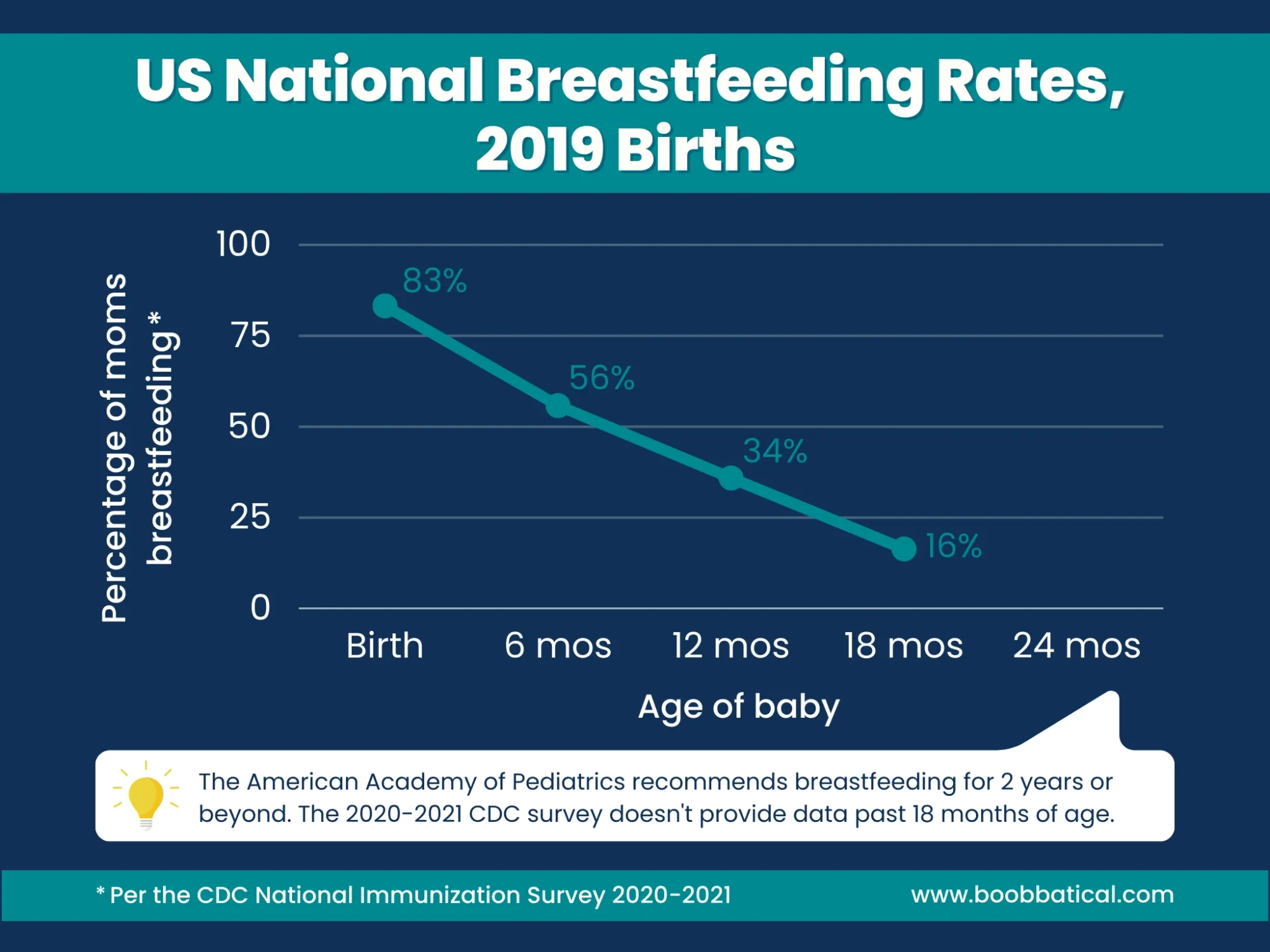
Breastfeeding Barriers
With so many benefits associated with breastfeeding, it's easy to see why over 80% of women in the U.S. plan to breastfeed their babies. Unfortunately, we also know that 6 out of 10 of these mothers aren't able to breastfeed as long as they intended to. There are many factors that can negatively influence a mother's ability to breastfeed - below you'll find the six most common ones as flagged by the CDC.

Unsupportive hospital practices and policies
Hospitals are at the top of our influencer list as the first hours after birth are the most critical in determining the success of breastfeeding. Many skills or practices, such as latching and limiting pacifier use, must be introduced immediately after birth to be most effective. Since its launch in 1991, the WHO/UNICEF Baby-Friendly Hospital Initiative has been the global standard for hospitals to promote these key practices. The initiative has seen some success over the years with the number of U.S. hospitals implementing them slowly increasing. However, of approximately 3,300 maternity hospitals in the U.S., only 289 are designated Baby-Friendly. That means only 14% of babies born in U.S. hospitals are being given the best chance at breastfeeding success.
Issues with latching and milk production
Breastfeeding may sound natural, but it doesn't come naturally for everyone. When we asked a group of moms what their biggest breastfeeding challenge was, a majority of their answers were related to latching and milk production. Latching - which is used in reference to how the baby fastens his or her mouth onto the mom - can be extremely difficult to get right. It takes time, and likely a lactation consultation or two, for a mom and her baby to sort it out and find a good rhythm.
Without a good latch:
- the mother can suffer painful engorgement which can lead to debilitating infections;
- the mother can begin losing her milk supply due to lack of demand; and
- the baby can quickly begin losing weight from malnutrition.
Even with a good latch, some women struggle with an oversupply of milk. Oversupply can cause:
- the mother to have clogged ducts which can lead to debilitating infections;
- the milk flow to be too fast for the baby leading to coughing and even choking; and potentially
- reflux symptoms if the baby is feeding in large volumes.
Concerns about baby's nutrition and weight
A nursing mother struggling with one of the challenges mentioned above might need to resort to alternative feeding methods. This is often deemed necessary when a baby's weight drops more than 10% in the first couple weeks after birth. The mom may find herself pumping and bottle-feeding, introducing formula, or using donor milk to ensure her baby is getting the nutrients it needs. Depending on the cause of the weight loss (i.e., poor latching vs milk production), she may be able to continue her breastfeeding journey while supplementing with the alternative method.
Mother's concern about taking medications while breastfeeding
Similar to nutrients consumed by a nursing mom, many medications can also be passed from a mom to her baby via breastmilk. While there's a good amount of research to establish whether or not common medications - such as pain relievers and cold remedies - can be safely taken while breastfeeding, there's still a lot to learn about specialized medications. Therefore, if a mother finds herself needing treatments that could potentially harm her baby, she may choose to forgo breastfeeding.
Cultural norms and lack of family support
Between getting the latch right, watching for hunger cues, balming cracked skin, and waking for night feedings, a lot of time and effort goes into breastfeeding. If a mom finds herself in an unsupportive environment either due to negative viewpoints or simply a lack of understanding, it can be highly detrimental to her success. These social influences can come from a wide range of places: a well-meaning partner or family member who wants to take part through bottle-feeding, a community that frowns on public breastfeeding, or even religious and cultural beliefs that discourage it. Whether it's many influences working against a new mom or a particularly potent one, her desire to breastfeed can quickly erode without sufficient support and encouragement.
Unsupportive work policies and lack of parental leave
Imagine a new mother overcoming all the physiological, social, and cultural strains mentioned above - while balancing the many other demands that come with motherhood - only to return to an employer who fails to appreciate the mountain she's been climbing and treats her as if she's simply returning from a vacation. A nursing mom with insufficient maternity leave may not even have an opportunity to get into a stable feeding routine before returning - making a transition to pumping extremely difficult.
Furthermore, regardless of the amount of leave, her ability to successfully pump while at work can suffer if her workload is inflexible, her manager is unprepared to support her, or her pumping accommodations are less than ideal. It can also be uncomfortable for her to excuse herself for pumping when she finds herself in environments dominated by those who are unfamiliar with or have negative views of breastfeeding.
That's a lot of challenges to overcome and it's not even an exhaustive list. The baby could also develop food intolerances or be premature and unable to nurse. The mom may not have her milk come in at all or suddenly find herself needing a lifesaving procedure that affects her supply. There are so many reasons breastfeeding can go sideways.
If you're looking for ways to help, you've come to the right place! Educating yourself on the struggles nursing moms face is a great start. You can also help eliminate the last barrier in our list by using Boobbatical resources to better equip managers and HR or engage your employer.